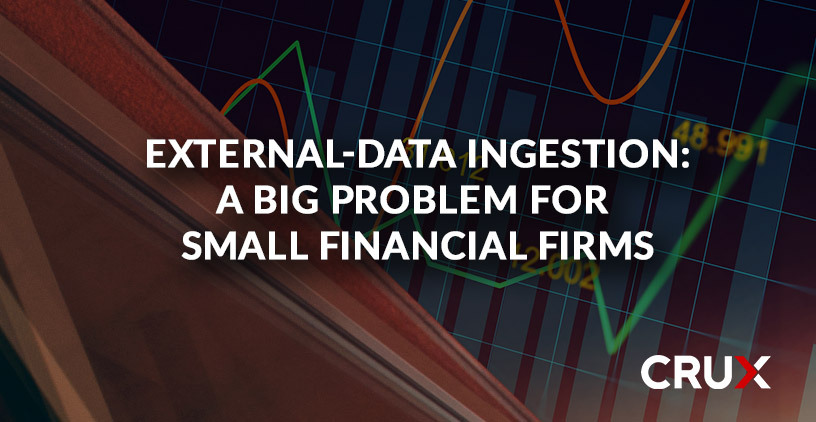What Cloud Marketplaces Do and Don’t Do
Not long ago, we observed here in our blog that the critical insights that drive business value come from data that is both (1) fast and (2) reliable.
In the world of company financing, investors are—at a high level—generally grouped into “financial investors” and “strategic investors.”
Financial investors are typically venture capital or private equity firms, or banks making loans to companies. These investors believe in the company value proposition, its product-market fit, its management team, and likely their own ability to help the company with advice and industry contacts that they may bring to the table. Their goal is strictly financial, meaning they are looking to sell the company or take it public, and thus cash out with a healthy return, typically in three to five years after their investment.
Strategic investors, on the other hand, typically include the company’s customers and partners. They typically believe the same things that a financial investor does about the prospects of the company and are also looking for eventual financial returns, but these investors frequently have more patience (i.e. will stay invested in the company longer than the three to five years typical of a purely financial investor) and, most notably, these investors also have a strategic interest in the company.
Because strategic investors are customers and partners of the firm, the firm’s very existence is of value to their own companies. Maybe the firm will help them gain internal efficiencies or give them better distribution for their own products. Maybe these investors believe the firm will bring about positive market evolution that aligns with their own company views and goals.
Getting funding from strategic investors has many upsides: not only do these investors care about your firm in ways beyond the financial return they will get from it, but they bring the actual perspective of your customers and partners to the table, and potentially to your Board meetings. This is extremely valuable. Our investors give us constructive early product feedback and help us explore a range of potential customer use cases. They can also help the firm directly by being customers providing revenue. They can share hands-on expertise with the firm.
At Crux, we count ourselves as fortunate to have all strategic investors. Venture capital and private equity firms bring tremendous value to firms beyond their capital, and many of them have stellar track records. But for getting Crux off the ground, we have found that having savvy strategic investors has been invaluable.
One challenge which comes with having strategic investors is that some customers may feel uneasy that these investors may compete with other customers. At Crux, we manage this challenge by treating all of our customers anonymously within our business.
Of course our Board needs to know how our business is progressing, and they want to see how our customer pipeline is growing, but we anonymize all our customer names so that even our Board members do not know who our actual customers and prospects are, and we never ever discuss specific use cases.
All of this aligns well with one of our key company values: discretion. It takes work to maintain discretion, but we feel it is well worth the effort and, in fact, critical for our business and for our customers.

Not long ago, we observed here in our blog that the critical insights that drive business value come from data that is both (1) fast and (2) reliable.

This past year has been exciting, representing the dawning of a new age for artificial intelligence (AI) and machine learning (ML)—with large...

How do you get white-glove customer service from a major data supplier?